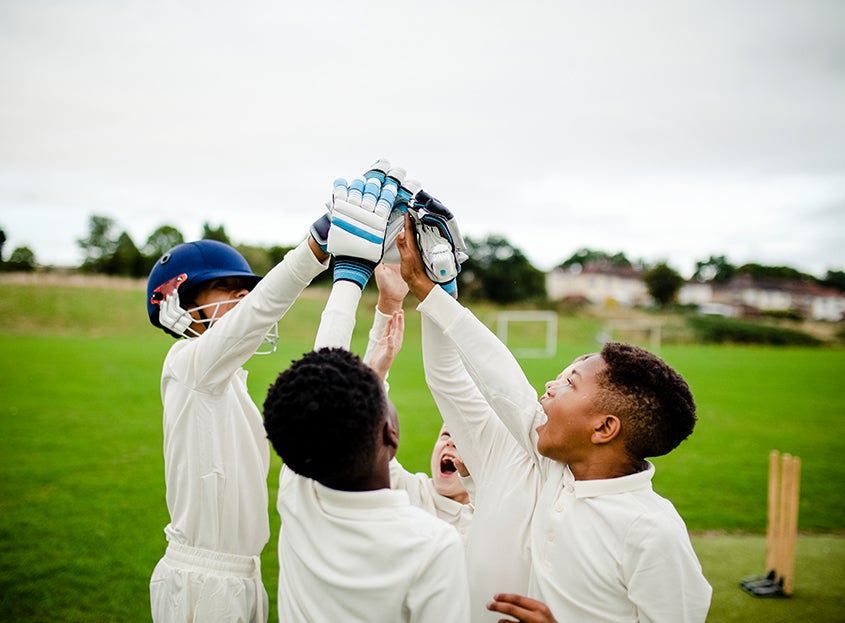Celebrating the Power of Philanthropy in Sport

With Wimbledon, the European Championships, and the much-anticipated Olympic and Paralympic Games in Paris all taking place this summer, the spotlight on sport has been brighter than ever. Sport is a unifying force in our society, bridging divides within and across communities. Despite the benefits that sport offers, access to it is not always straightforward or equal. Philanthropy has an important role to play in overcoming some of these barriers.
Sport is deeply embedded in British culture. Beyond just watching and playing it, we are committed to investing in its success and growth—whether that’s through financial support, or donating our time and expertise. 6.7 million people in the UK volunteer each year to support sport and physical activity and, in 2023 alone, the British public gave £264 million to sport and recreation causes.
On a larger scale, the National Lottery has invested more than £5.7 billion into community sport since 1994, while Comic Relief has supported more than 500 projects since 2022 through its Sport for Change campaign. The extent of philanthropic support that sport receives in the UK is indicative of the value society places on the wide-ranging benefits it brings.
Sport has the power to inspire and unite in a way that little else does. For centuries, people who otherwise have little in common have come together on pitches, courts, sidelines and in stadiums, putting aside their differences for the love of their teams. Its impact on communities is so strong that over two thirds of people in the UK believe that local sports clubs and groups play a crucial role in fostering a sense of community in their area.
Participating in sport also has important benefits for people’s physical and mental health. As well as keeping people physically fit, sport can help us reduce stress, improve sleep, boost confidence, and manage symptoms of depression and anxiety. Being part of a team or local sports club can also bring people together and build a sense of belonging, helping to reduce isolation and loneliness.
For the 150,000 grassroots sports clubs across the country, philanthropy is a lifeline. Although they are the heart of British sport, these clubs often operate with limited resources. Philanthropic funding is essential for their success. It helps clubs cover operational costs, improve facilities, and offer greater opportunities to young athletes, making sport more accessible for all.
Beyond just financial donations, the impact of those volunteering their time in the sports industry is huge. Each volunteer creates the capacity for at least 8.5 more people to play sport. To put this into perspective, with over 25,000 volunteers in UK grassroots tennis alone, 212,500 people across the UK gain the opportunity to play that otherwise may not have been able to.
Philanthropy also helps to build the next generation of sporting talent. Charities like Sports Aid, which focus on helping talented young athletes achieve their potential, have had enormous impact in the UK. Since 1976, Sports Aid has supported tens of thousands of athletes by distributing over £50 million in awards to support our nation’s top athletes including Jessica Ennis-Hill, Mo Farah and Steve Redgrave.
Sport is a key area in which philanthropy can affect meaningful social change. It has the power not only to empower local sports clubs and communities, but also to support the development of our nation’s top athletes. As we look forward to the sporting summer, it’s clear that investing time and capital in sports is essential not only to build the next generation of world champions but drive positive change for communities across the nation.
NPT UK does not provide legal or tax advice. This blog post is for informational purposes only and is not intended to be, and shall not be relied upon as, legal or tax advice. The applicability of information contained here may vary depending on individual circumstances. NPT UK is not affiliated with any of the organisations described herein, and the inclusion of any organisation in this material should not be considered an endorsement by NPT UK of such organisation, or its services or products.


